| | |

Chapter 4
|
|
|
|
|
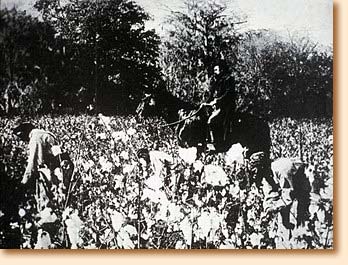 |
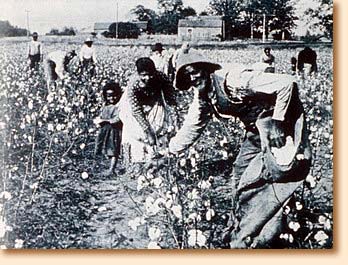 |
| | |
|
On my way to Florida in the winter I discovered where this anger and hostility, which blossomed into my terrifying encounter in the
Northern streets, had its roots.
Few blacks today pick cotton, but nothing has shaped our
relationship to blacks as much as cotton.
|
| | |
|
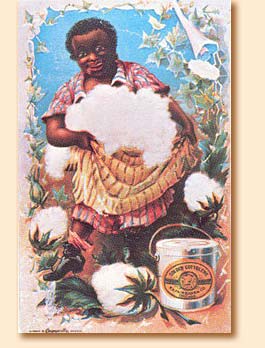 |
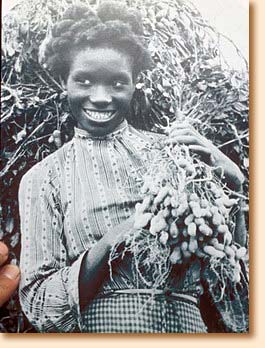 |
| | |
|
Meeting those still trapped behind the cotton
curtain in the midst of an affluent society seemed so surreal that I
immediately felt thrown back in history - smothered by the cotton whose white
tyranny once shrouded all black life in the South.
|
| | |
|
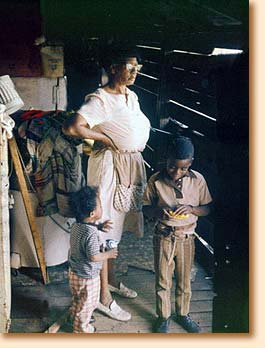 |
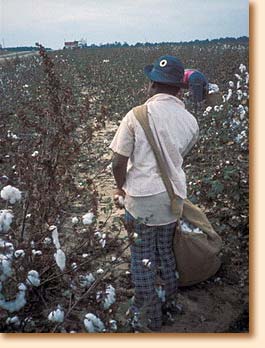 |
| | |
|
When I worked in the cotton
fields I discovered that reality looked quite different from historical
pictures and caricatures I remembered of smiling, almost childishly happy
cotton pickers.
|
| | |
|
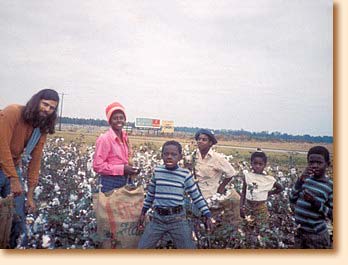 |
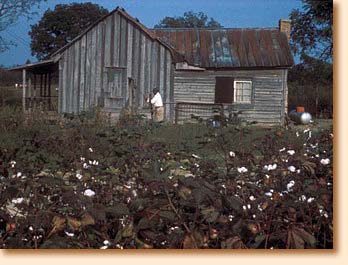 |
| | |
|
The smiles in this picture were in fact the only ones I saw in
the cotton plantations, when one of the pickers couldn't figure out how my
camera functioned.
|
| | |
|
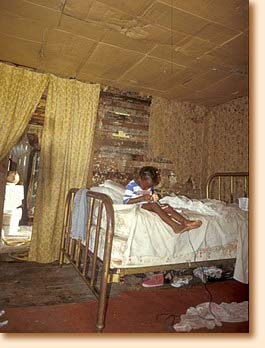 |
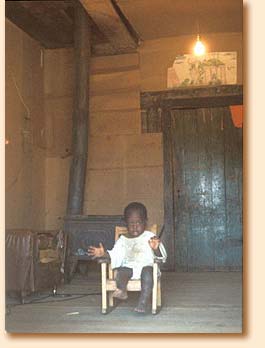 |
| | |
|
It took me a long time to overcome their hostility and fear of me as a
white, but in the end I was invited to live with them in
return for giving them all the cotton I picked.
|
| | |
|
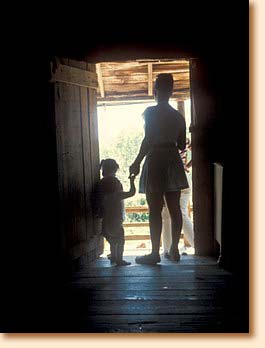 |
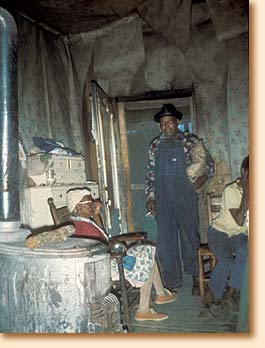 |
| | |
|
Though I toiled from morning to night and was aching all over, I never
succeeded in picking more than four dollars worth a day. The others were more
experienced and could make over six dollars a day.
|
| | |
|
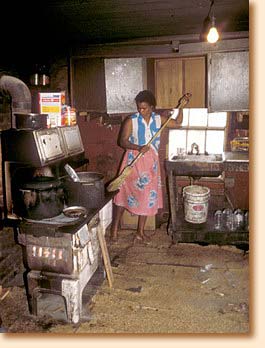 |
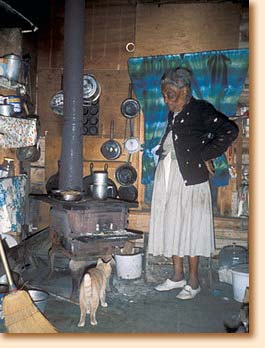 |
| | |
|
We worked on a piecework
basis and were paid four cents a pound. The white landowner then resold it on
the market for 72 cents a pound.
|
| | |
|
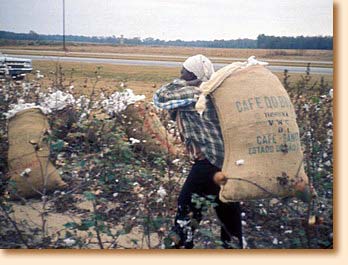 |
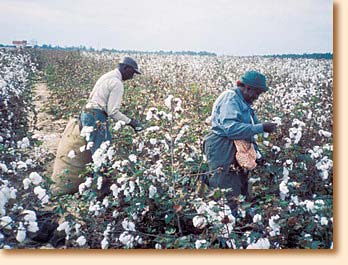 |
| | |
|
Even after expenses for fertilizer and machinery were
subtracted, I soon began to understand how the landlord could afford to live in
a big white mansion while his black pickers must live in shacks.
|
| | |
|
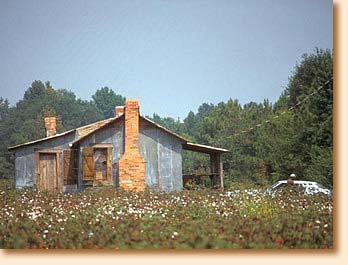 |
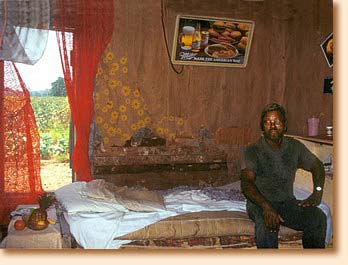 |
| | |
|
At quitting time the son of the landlord arrived to weigh the cotton
and pay us on the spot.
|
| | |
|
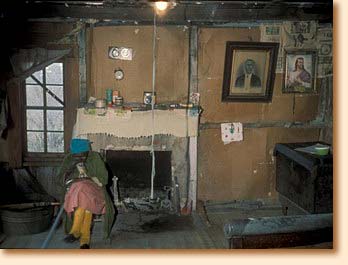 |
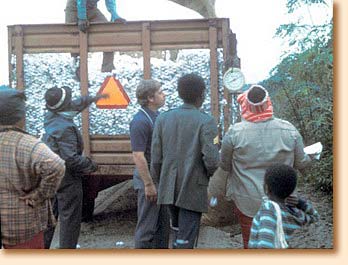 |
| | |
|
We were tired and exhausted and there was no joy at receiving the money,
which hardly stretched to pay for the kerosene for the lamp at home in the
shack, which probably was not bigger or better than the ones the slaves
originally lived in.
|
| | |
|
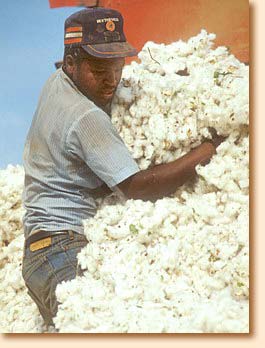 |
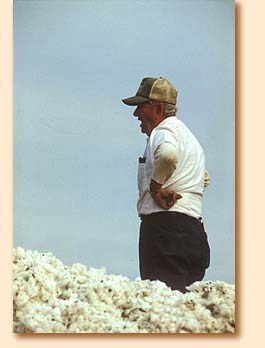 |
| | |
|
How can these people be called free, when
everything around them reminds them of the old master/slave relationship? |
| | |
|
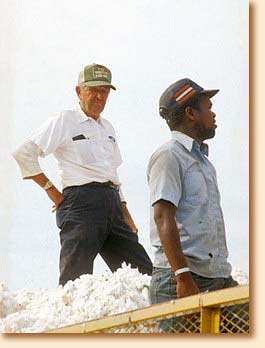 |
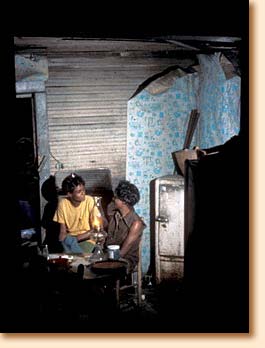 |
| | |
|
Slave driver
|
| | |
|
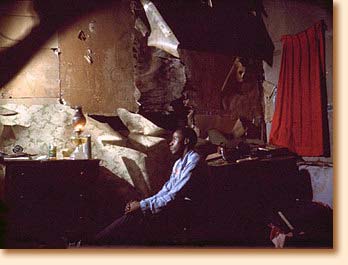 |
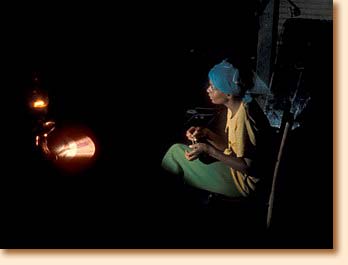 |
| | |
|
The tables are turned now, catch a fire
you're going to get burned now.
|
| | |
|
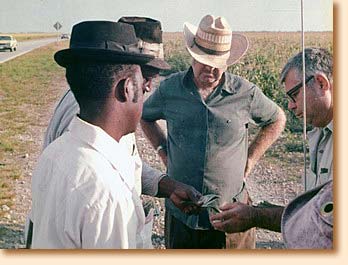 |
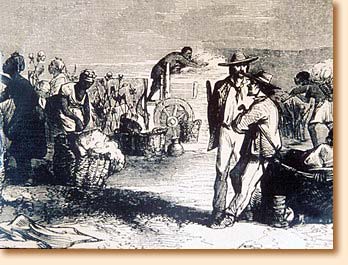 |
|
|
|
Every time I hear the crack of the whip
my blood run cold
|
| | |
|
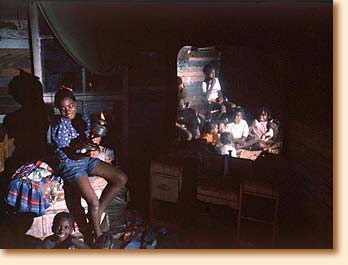 |
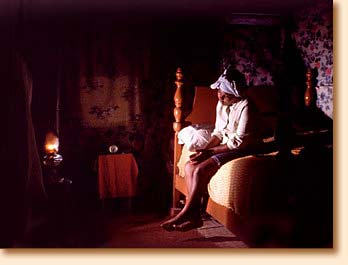 |
|
|
|
I do remember on a slave ship
how they brutalized my very soul.
|
| | |
|
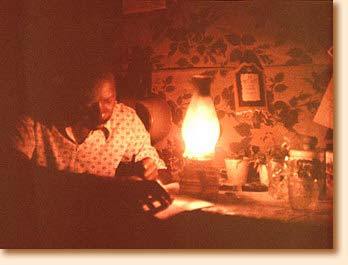 |
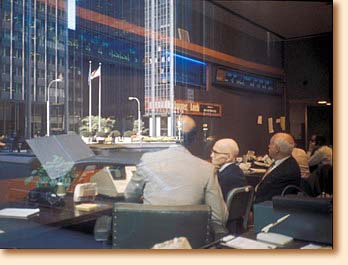 |
|
|
|
Today the say that we are free
only to be chained in this poverty!
|
| | |
|
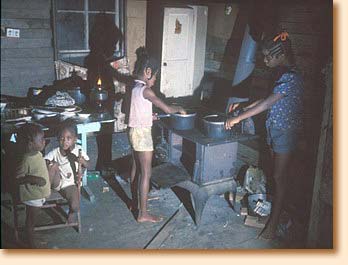 |
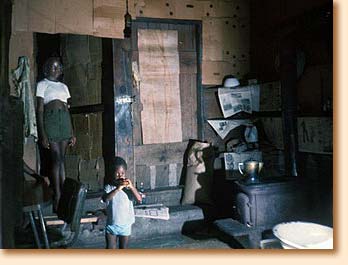 |
|
|
|
Good God I think it is illiteracy
it's only a machine that makes money.
|
| | |
|
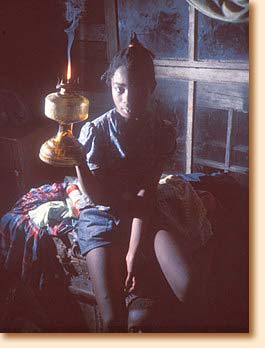 |
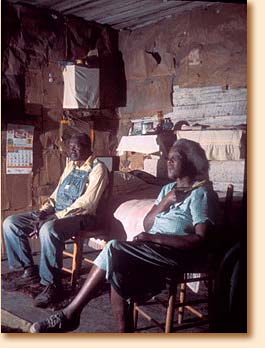 |
|
|
|
We certainly experienced the "machine" - personified in stockbrokers reading
the tickertape just as a century ago they had found it their natural right to
invest in human beings as private property - as more than mere
paper-speculators when hour after hour the well-to-do people from up North
swept past us in the cotton fields in their big motor homes and campers on
their way to the sun in Florida.
|
| | |
|
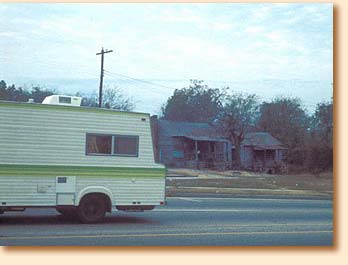 |
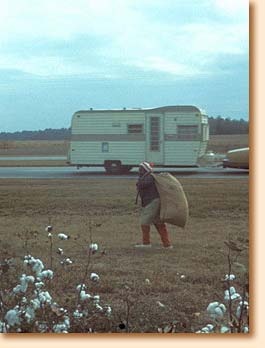 |
|
|
|
Each of their rolling homes burns up as much
gas in an hour as we could buy after a whole day in the cotton fields.
Why are
these paper-shufflers up in New York and Massachusetts able to have these extra
rolling houses when they already have huge homes and the cotton pickers do not
even have a waterproof shack to live in?
|
| | |
|
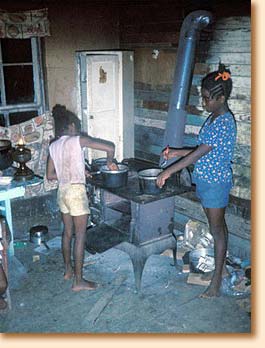 |
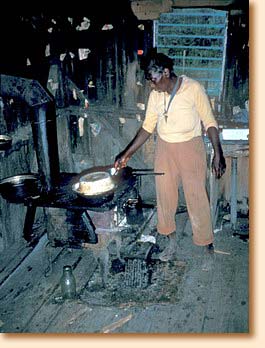 |
|
|
|
|
| | |
|
|
| | |